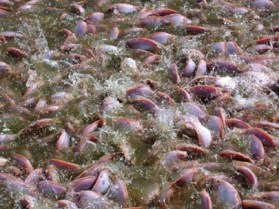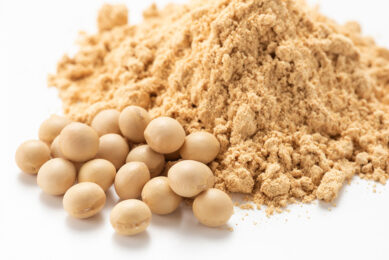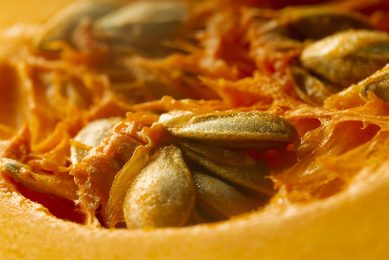Research: Soybean meal in tilapia diets

Chinese scientists studied the effects of different levels of soybean meal inclusion in replacement for fish meal on growth, digestive enzymes and transaminase activities in practical diets for juvenile tilapia.
This study evaluated the effects of replacing fish meal (FM) in practical diet for tilapia (Oreochromis niloticus × O. aureus) with different levels of soybean meal (SBM) on growth, digestive enzymes and liver transaminase activities.
Five isonitrogenous (crude protein 300 g/kg) and isoenergetic (gross energy 16 kJ/g) practical diets were formulated by replacing 0 (the control), 25, 50, 75 and 100% of protein from fish meal with SBM.
Each diet was randomly assigned to triplicate groups of 30 fish per aquarium (mean initial weight 4.0 g). Fish were fed three times daily to apparent satiation for 8 weeks.
Results
The results showed that the growth was affected by dietary SBM level. Fish fed the diet with 100% protein from SBM had lower relative weight gain ratio, specific growth rate and protein efficiency ratio than the other groups.
Feed conversion ratio was higher than other groups with a 100% substitution level.
The activities of protease in both intestine and hepatopancreas decreased with increasing dietary SBM level.
Regression analysis showed a negative effect of soybean meal inclusion on protease activity. Likewise, protease activities were found to be positively correlated with growth rate of tilapia.
However, no significant differences were observed in both intestinal and hepatopancreas amylase activities among dietary treatments.
Fish fed the diet with 50% or more protein from SBM had lower glutamyl oxaloacetic transaminase and glutamyl pyruvic transaminase activities in liver than the control group.
A similar trend was observed in the immune response where superoxide dismutase (SOD) and lysozyme activity decreased compared with the control group when the substitution level was more than 50%.
Conclusion
Results of the present study indicated that protein from SBM could substitute less than 75% for fish meal protein without influencing the growth of tilapia.
The higher substitution levels of SBM induced negative influences on growth, feed utilization and serum lysozyme of tilapia.











